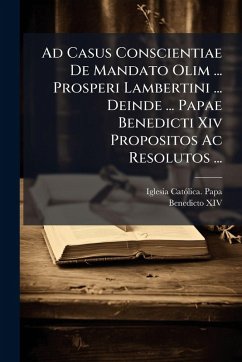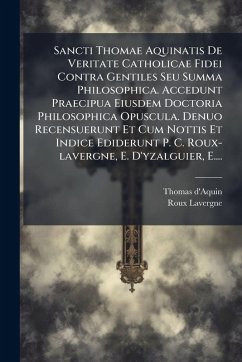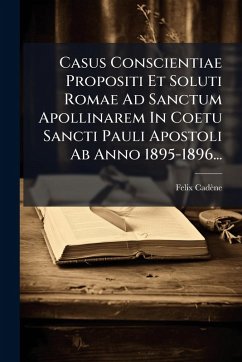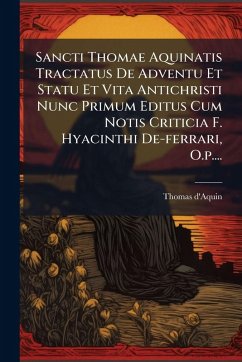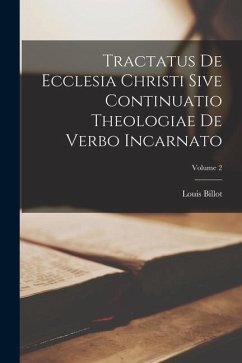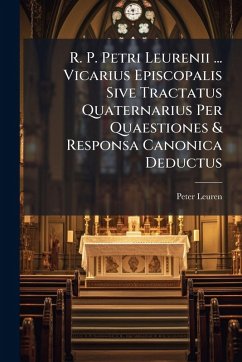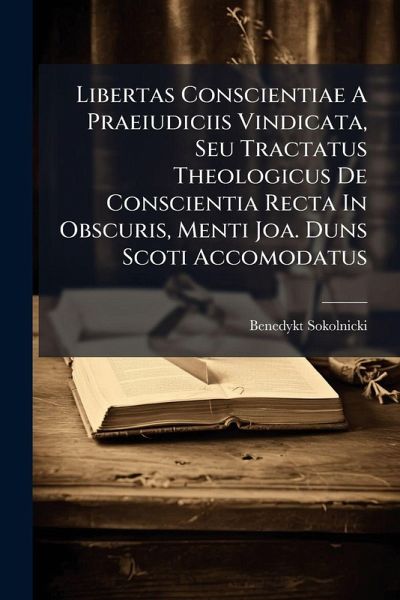
Libertas Conscientiae A Praeiudiciis Vindicata, Seu Tractatus Theologicus De Conscientia Recta In Obscuris, Menti Joa. Duns Scoti Accomodatus

PAYBACK Punkte
12 °P sammeln!
Libertas Conscientiae A Praeiudiciis Vindicata, Seu Tractatus Theologicus De Conscientia Recta In Obscuris, Menti Joa. Duns Scoti Accomodatus, a theological treatise by Benedykt Sokolnicki, explores the concept of conscience, particularly focusing on the 'right conscience in obscurity' and adapting the philosophical framework of John Duns Scotus. This work delves into the freedom of conscience, seeking to liberate it from prejudices through a theological lens. Sokolnicki's exploration offers insights into ethical decision-making within the context of Christian theology, providing a framework f...
Libertas Conscientiae A Praeiudiciis Vindicata, Seu Tractatus Theologicus De Conscientia Recta In Obscuris, Menti Joa. Duns Scoti Accomodatus, a theological treatise by Benedykt Sokolnicki, explores the concept of conscience, particularly focusing on the 'right conscience in obscurity' and adapting the philosophical framework of John Duns Scotus. This work delves into the freedom of conscience, seeking to liberate it from prejudices through a theological lens. Sokolnicki's exploration offers insights into ethical decision-making within the context of Christian theology, providing a framework for understanding conscience that remains relevant for those studying religious ethics and Catholic thought. The book is a valuable resource for theologians, philosophers, and anyone interested in the intersection of faith, reason, and individual moral judgment. This work has been selected by scholars as being culturally important, and is part of the knowledge base of civilization as we know it. This work was reproduced from the original artifact, and remains as true to the original work as possible. Therefore, you will see the original copyright references, library stamps (as most of these works have been housed in our most important libraries around the world), and other notations in the work. This work is in the public domain in the United States of America, and possibly other nations. Within the United States, you may freely copy and distribute this work, as no entity (individual or corporate) has a copyright on the body of the work. As a reproduction of a historical artifact, this work may contain missing or blurred pages, poor pictures, errant marks, etc. Scholars believe, and we concur, that this work is important enough to be preserved, reproduced, and made generally available to the public. We appreciate your support of the preservation process, and thank you for being an important part of keeping this knowledge alive and relevant.



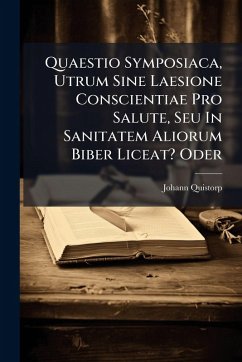
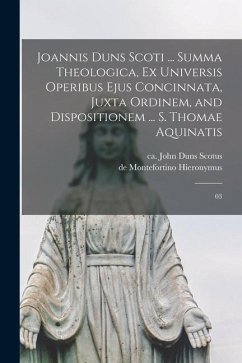
![Instructiones S.S. Caroli BorromÃ]i, Francisci Salesii, Alphonsi Ligorii Et Francisci Xaverii, De Recta Administratione Sacramenti PÅ Cover Instructiones S.S. Caroli BorromÃ]i, Francisci Salesii, Alphonsi Ligorii Et Francisci Xaverii, De Recta Administratione Sacramenti PÅ](https://bilder.buecher.de/produkte/74/74425/74425297n.jpg)
